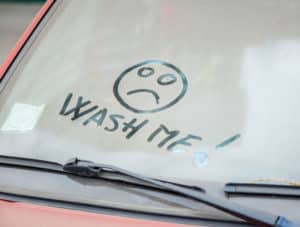Common Habits You Didn’t Know Could Be Damaging Your Car

Regardless of how experienced of a driver you might be, there are still a few common habits you may not know that could be damaging your car.
Dragging the brakes downhill
Brake pads and discs don’t appreciate the extra wear and tear caused by dragging/ridding (keeping your foot on the brake pedal while driving) your brakes downhill. Doing this mean you’ll have to replace them often and waste money unnecessarily doing so.
Instead of dragging/ridding your brakes, try engaging in a low gear, applying a bit of braking and then releasing the pedal so that the brakes have a chance to cool. When required, apply the brakes gently, but remember to repeat the process until you’re at the foot of the hill.
Not cleaning your car
Making your car clean isn’t something that you do just to create a good impression, but rather a matter of taking care of your vehicle’s performance. Dust, water droplets, mud, and airborne contaminants stick to your car by accumulating themselves.
Washing your car regularly will help to avoid all of these risks and debris from entering into your engine that can cause blockage and rust that will affect its parts negatively and could lead to costly repairs.
Getting cheap on engine oil and other essentials
Just because it’s cheaper doesn’t mean it’s good, in fact, purchasing engine oil and other essential components simply because their price is lower could actually end up causing expensive damage to your engine.
Always look for quality authorized products so that you can enjoy your vehicle at the top of its performance.
Keeping your auto car in neutral at a red light
One of the most common habits you may not know could be damaging your car is keeping it in neutral as you wait for the red light to turn green. For automatic transmission car owners, doing this could be causing extra wear to the engine.
Driving with an almost empty tank
While it certainly can happen every now and then, driving until the “empty” sign is on is not a good habit. Sediments can accumulate at the bottom of the fuel tank, so when it is almost empty, your car’s fuel pump will draw fuel sitting at the bottom of the fuel tank, along with all of the sediment and debris that’s been trapped in there. Therefore, this risks clogging your fuel filter and causing damage to the fuel pump.
Neglecting warning lights
More modern cars have many flashing lights in their dashboards that can be confusing to figure out what they all mean. However, you shouldn’t ignore them once they do start flashing.
Checking your owner’s manual and familiarizing yourself with the most serious signs is the proper way to avoid any unpleasant situation right away. If a warning sign starts signaling the engine, braking system, power steering failure, oil pressure or cooling system, it’s time to stop your vehicle and address the problem immediately.
Hitting potholes and speed bumps
Did you know that a third of all vehicle damage results from potholes? Driving carelessly over them can result in anything from bent/buckled wheels, lumps in the tire, and damage to your wheel balancing, so try your best to avoid them.
The same goes for speed bumps, which are not designed to be driven over at full speed. If you don’t slow down for them, damage can be caused to the front and rear of the car along with its exhaust system.
Overloading your car
Loading it to the fullest of its capacity is another one of those common habits you may not know that could be damaging your car. The greater the weight, the more strength you’re placing over the brakes, suspension components, and drivetrain.
To find out how much weight your car can resist, check the owner’s manual and remember that travelling lighter is best for its fuel economy and emissions output.
Late braking
While there are moments in which you definitely need to emergency stop, late braking causes great strain to the braking system and consumes more fuel, while also wearing out your pads and brake discs faster.
Leaving your car’s service until it’s too late
Your vehicle should be regularly serviced in order to keep functioning at the top of its capacity. Don’t wait until you’ve started hearing funny noises to bring it to a technician. Instead, follow a healthy schedule of servicing every three to six months.
By taking your car to get its regular checkup, you’ll be able to catch problems earlier and fix them before they turn into a crisis. Basic car maintenance can keep you protected from expensive repairs and more serious damage.

Leave a Reply
You must be logged in to post a comment.